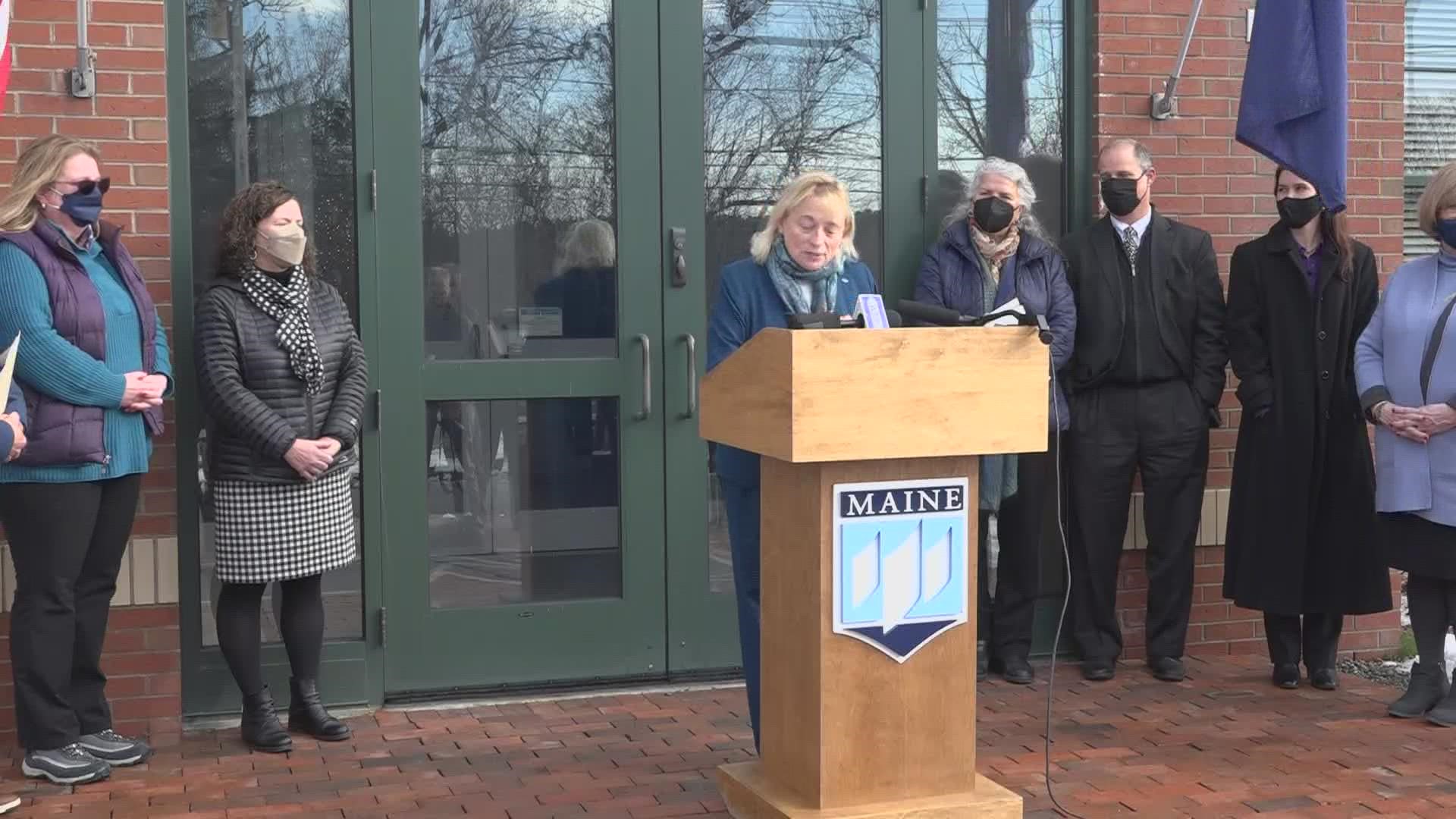ORONO, Maine — It's been one year since Gov. Janet Mills first announced Maine Won't Wait, a four-year plan to fight climate change in Maine. According to the Mills Administration, more than 200 people serving on the Maine Climate Council contributed to the plan.
The governor marked that milestone Wednesday at the University of Maine. Alongside several members of Maine's Climate Council, she unveiled two initiatives to keep the plan moving forward.
"Scientists tell us that the danger of climate change is code red for humanity," Mills said.
The Maine Community Resilience Partnership is a $4.75 million grant program designed to help municipal and tribal governments start or improve climate action plans. The partnership is open for enrollment starting in January.
The $20 million Maine Climate Infrastructure Fund, through the Maine Department of Transportation, will provide grants to improve stormwater, drinking water, and wastewater infrastructure. The Maine DOT will accept grant applications from communities next spring.
"This framework provides us a reason to be hopeful for how we can tackle this in the future," said Ivan Fernandez, a professor at the School of Forest Resources and Climate Change Institute at UMaine.
In the first year of Maine's climate action plan, more than 28,000 heat pumps were installed, as well as nearly 250 electric vehicle charging stations for roughly 6,000 electric vehicles across the state.
The Mount Desert Island school system also introduced Maine's first electric school bus.
"We're making unprecedented strides to embrace clean energy, to reduce carbon emissions, to strengthen our economy and help our local communities fight at every level the greatest danger of our time," Mills said.
Jake Ward, vice president of Innovation and Economic Development at UMaine, said professors at the university are also doing their part to engage students in the fight against climate change.
"It's really being aware of your surroundings and understanding what your opportunity is to make a difference whether it's how you behave or whether it's a future job or career," Ward said.
Mills said the state is committed to reducing greenhouse gas emissions by 45% by 2030 and 80% by 2050.
For more information about Maine’s climate plan and the effects of climate change on the state, click here.

